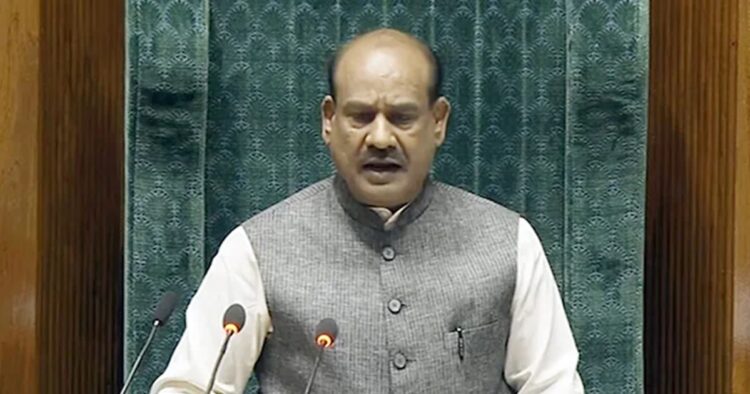On Wednesday, Om Birla, the National Democratic Alliance (NDA) candidate and Member of Parliament from Kota, was elected as the Speaker of the 18th Lok Sabha. The motion for his election, moved by Prime Minister Narendra Modi and seconded by Defence Minister Rajnath Singh, was adopted by the house through a voice vote. The announcement was made by the pro-tem speaker Bhartruhari Mahtab amidst echoing ‘Ayes’ from the house.
The opposition, which had initially proposed K Suresh as the Speaker candidate, did not press for a division vote. Even though there was a candidate from the INDI alliance, the election proceeded smoothly without a need for a division, showcasing a consensus among the majority.
#WATCH | BJP MP Om Birla occupies the Chair of Lok Sabha Speaker after being elected as the Speaker of the 18th Lok Sabha.
Prime Minister Narendra Modi, LoP Rahul Gandhi and Parliamentary Affairs Minister Kiren Rijiju accompany him to the Chair. pic.twitter.com/zVU0G4yl0d
— ANI (@ANI) June 26, 2024
Leader of Opposition Rahul Gandhi extended his wishes to Om Birla and accompanied him to the Speaker’s chair along with Parliamentary Affairs Minister Kiren Rijiju and Prime Minister Modi. This bipartisan gesture marked the beginning of Om Birla’s tenure as the Speaker of the lower house of Parliament.
The election of Om Birla came after a period of deliberation, as the NDA and the opposition engaged in discussions regarding the Deputy Speaker’s position. Ultimately, the NDA, with its clear majority of 293 MPs in the 543-member Lok Sabha, ensured the election of Om Birla as Speaker, a role he previously held in the 17th Lok Sabha.
The first session of the 18th Lok Sabha commenced on June 24 and is set to conclude on July 3. Concurrently, the 264th Session of Rajya Sabha will begin on June 27 and also conclude on July 3. A joint sitting of both houses of Parliament is scheduled for June 27, during which President Murmu will address the assembled members.
Om Birla’s election as Speaker represents a pivotal moment in India’s parliamentary history, marking a continuation of democratic processes and parliamentary traditions in the country’s highest legislative body.

















Comments